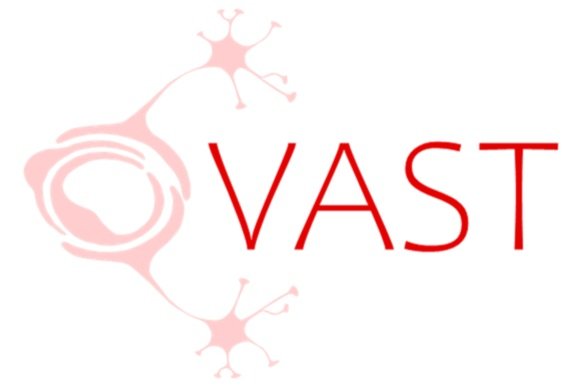All times are displayed in Eastern Canadian Time (ET).
Register to become a VAST Member to receive the link to the VAST Google calendar and stay informed of upcoming events. Zoom links will be included in email notifications and added to the Google calendar.
Seminars and workshop series: biweekly Thursdays 12-1 PM ET.
Journal club: last Monday of each month 3-4 PM ET.
Links to available recordings of past events are posted on RISE and below (following the upcoming events, however earlier events and recordings will not show up here).
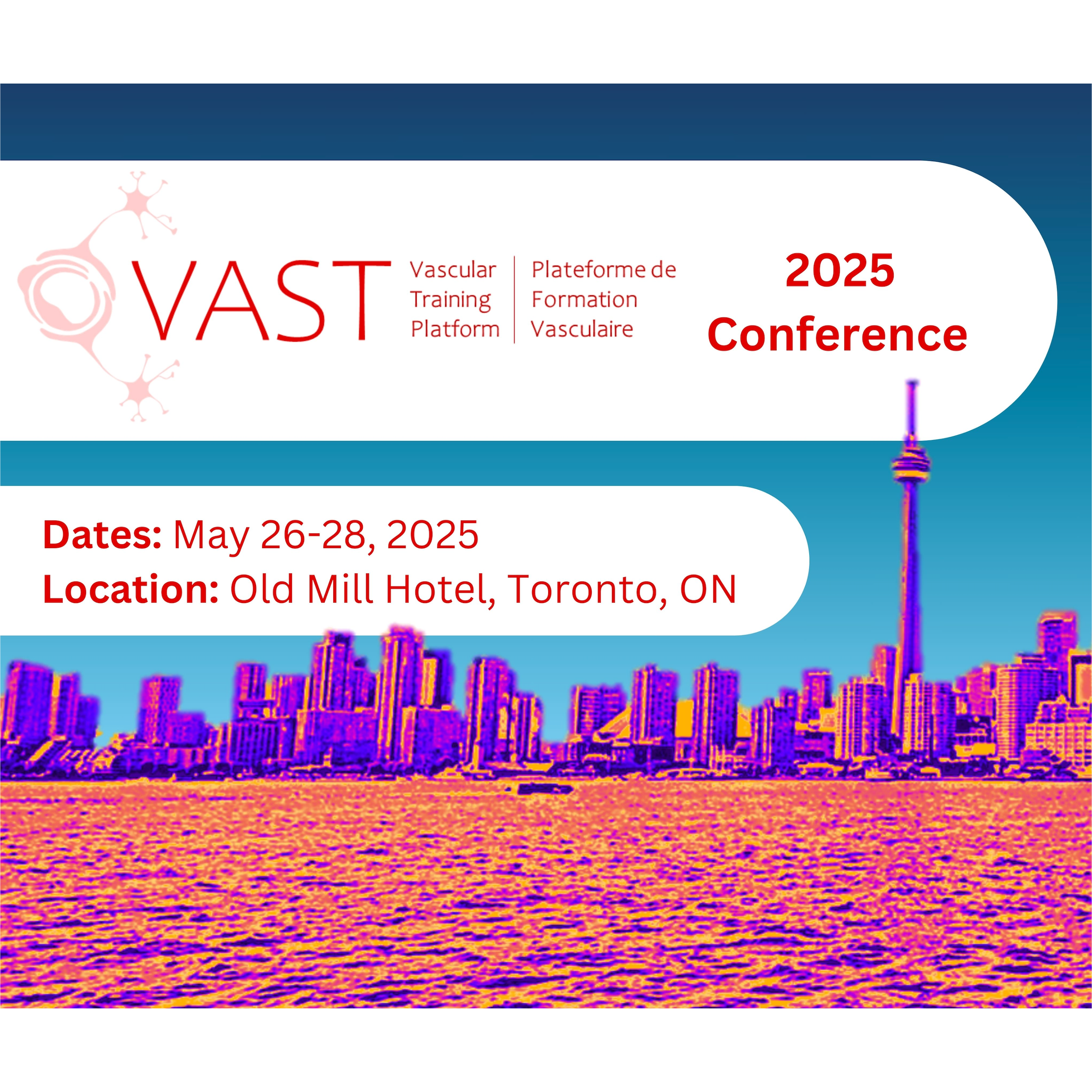

VasCog 2025
The International Society of Vascular Behavioural and Cognitive Disorders
Interest in the vascular causes of various brain disorders including Alzheimer’s disease, vascular dementia, mild cognitive impairment, depression, and other behavioural disorders has grown immensely over the last decade. Recent evidence suggests that these brain disorders may be delayed or even prevented by treatment of vascular risk factors such as hypertension and hypercholesterolemia.
The potential implications of these findings span a diverse arena of both scientific and clinical interest and it is increasingly apparent that a forum for discussion and education on vascular causes of various brain disorders is needed. Such a forum should also develop research strategies to address key issues in cerebrovascular disorders.The International Society of Vascular Behavioural and Cognitive Disorders.
Where: University of southampton, Southampton, Hampshire, UK
When: September 15th – 18th, 2025
What: Master Classes, Plenaries, Symposia and Debates
Expect abstract submissions to open March 2025. Check back on the website soon!

The Role of Exercise on Cognition and Falls
Falls Conference Events
Organized by the Gait & Brain Lab and the CIHR Institutes of Musculoskeletal Health and Arthritis and the Institute of Aging Joined by The Brain Health Care (BHCare) Training Platform
Register here.
Tune in for the YouTube live stream.
Guest Speaker: Stephen R. Lord PhD
Scientia Professor
University of New South Wales
Neuroscience Research Australia
Professor Stephen Lord is a Scientia Professor at the University of New South Wales and a Senior Principal Research Fellow at Neuroscience Research Australia (NeuRA) in Sydney, Australia. A globally recognized expert in balance, gait, and falls in older adults, he has published over 500 research papers on applied physiology, instability, falls in aging in clinical populations with balance impairments. He focuses on identifying psychological, sensorimotor, and balance-related risk factors for falls and developing effective fall prevention strategies.
His work has been instrumental in shaping fall-risk assessment methods used by researchers and clinicians worldwide. He was also a key contributor to the development of the World Falls Guidelines, which provide evidence-based recommendations for fall prevention and management on a global scale. Currently, his projects explore cognitive-motor interventions and innovative technologies to reduce fall risk, particularly in high-risk groups such as individuals with Parkinson’s disease, multiple sclerosis, dementia, stroke, and dizziness disorders. Professor Lord’s contributions continue to influence policy and practice, helping to advance fall prevention research and improve the health and well-being of older adults.
Learning Objectives:
Upon completion of this activity, the participant will be able to:
Examine the role of exercise in enhancing cognition and balance in older adults
Explore current exercise interventions, based on randomized controlled trials (RCTs), that integrate cognitive and physical training to prevent falls.
Recognize the types, frequency, and intensity of exercise for effective fall prevention.
Agenda:
2:45 pm - Welcome Remarks
2:50 pm: - Dr. M. Montero-Odasso: “Exercises as Holy Grail for Brain Health and Falls Prevention”.
3:00 pm - Professor Stephen R. Lord - Lecture: “The Role of Exercise on Cognition and Falls” and “Questions & Answers”.
4:00 pm - Round Table Discussion: “Implementation of the World Falls Guidelines in Australia. Successes & Challenges.”
4:45 pm - Adjourn
Acknowledgements
Gait and Brain Lab and the Division of Geriatric Medicine, Department of Medicine, at the Schulich School of
Medicine & Dentistry, Western University, Wolfe Research Professorship on Aging, and CIHR Institute of Musculoskeletal Health and Arthritis, CIHR Institute of Aging

March Journal Club
Presenter: Christine Seo (left)
Paper: Sex Difference in Aerobic Exercise Efficacy to Improve Cognition in Older Adults with Vascular Cognitive Impairment: Secondary Analysis of a Randomized Controlled Trial
Learning objectives:
Understand the effects of aerobic training (AT) on executive functions in older adults with subcortical ischemic vascular cognitive impairment (SIVCI)
Understand sex differences in the effects of AT in older adults with SIVCI
Discuss the significance of research that allows for more personalized exercise recommendations to maximize benefits amongst older adults
About the Speaker:
Christine is a second-year MSc student in Neuroscience at the University of British Columbia (UBC). Prior to starting her MSc, she has completed a BSc in Behavioural Neuroscience at UBC and worked full-time as a research assistant withing the Aging, Mobility and Cognitive Health lab at UBC, where she is currently completing her MSc, then as the clinic and research coordinator of the Vancouver General Hospital's Falls Prevention Clinic. Christine's MSc research focuses on the effect of resistance training on structural MRI outcomes (i.e., regional brain volumes) in older adults with subcortical ischemic vascular cognitive impairment.
Presenter: Jaiden Kuchinka (right)
Paper: Implications of Risk Factors for Alzheimer’s Disease in Canada’s Indigenous Population
Learning Objectives:
This presentation will examine a study that investigated the PAR of Alzheimer’s disease (AD) associated with modifiable risk factors among Indigenous and non-Indigenous populations in Canada. While the paper focuses primarily on individual-level modifiable factors such as physical inactivity, smoking, and educational attainment, this discussion will extend beyond these findings to examine the wider social determinants of health that disproportionately impact dementia prevalence among Indigenous populations.
Understand some of the modifiable risk factors that affect AD in Indigenous vs Non-Indigenous populations in Canada
Understand the importance on identifying wider social factors that impact populations and not just modifiable risk factors at the individual level
About the Speaker:
Jaiden Kuchinka is an Indigenous Master's student in the Department of Community Health Sciences specializing in population and public health at the University of Calgary. Her current research aims to establish what is needed to create adaptable and culturally informed spaces that provide Indigenous-centred dementia care, setting a standard for engaging with communities in a manner that respects and addresses their unique needs.

Mendelian Randomization to Identify Causal Links Using Genetic Associations
Speaker: Sarah Gagliano Taliun
In this seminar we will describe the concept of Mendelian randomization and how to carry out this study design through the use of examples.
Learning objectives:
Describe the concept of a Mendelian randomization study to the general public
Understand the appropriate contexts for using Mendelian randomization
List the assumptions central to Mendelian randomization and interpret results
About the Speaker:
Bio: Sarah Gagliano Taliun is an FRQS Junior 2 Assistant Professor at the Departments of medicine and neurosciences at the Université de Montréal. She leads a computational research group located at the Research Centre of the Montreal Heart Institute. Dr. Gagliano Taliun completed her PhD at the University of Toronto, and a postdoctoral fellowship at the University of Michigan before starting her own lab in Montreal in late 2020. Her research group uses computational tools and approaches to identify and better understand genetic factors contributing to complex human traits, primarily neurodegenerative disorders.

The LORIS Data Access Workflow
Speaker: Camille Beaudoin
This webinar will provide an overview and demo of the data access workflow in LORIS and relevant modules. Attendees will gain an understanding of LORIS and the CCNA data currently being released, as well as learn how to effectively use the software. The session will give researchers the proper tools to start using the Compass-ND and Can-Thumbs Up data by teaching them how to request an account, complete a data access request form, use the LORIS data dictionary, and make queries in the DQT. Additionally, participants will explore the different data release pathways, including the data release module, DQT, and ProFTPD server.
Learning objectives:
• Understand the purpose and structure of LORIS as it pertains to CCNA.
• Learn how to request an account and submit a data access request.
• Utilize the data dictionary and DQT.
• Navigate the data release modules effectively.
Who I am:
Camille is a research software developer who has been working on LORIS for the Canadian Consortium of Neurodegeneration and Aging (CCNA) for 6 years. She manages the CCNA database on LORIS and is dedicated to providing accessible software for studies and researchers alike.

February Journal Club
Presenter: Natalia Docteur (left)
Learning objectives:
Understand increased dementia risk in adults with ADHD
Explain how white matter hyperintensity burden contributes to cognitive impairment
Discuss cognitive vulnerability to vascular brain pathology in later-life ADHD
Paper: Vascular Burden Moderates the Relationship Between ADHD and Cognition in Older Adults
Natalia is a second-year PhD student in Clinical Psychology at the University of Calgary. She completed her Hons. B.Sc. in Psychology and Cognitive Science at the University of Toronto and worked as a Research Analyst at the Sunnybrook Research Institute and Centre for Addiction and Mental Health prior to starting graduate school. Her current research investigates relationships between white matter microstructure, cardiovascular risk factors, and cognition in adults with ADHD. Clinically, Natalia specializes in the neuropsychological assessment and diagnosis of older adults with brain disorders (e.g., dementia, traumatic brain injury) presenting with comorbid psychopathology.
Recording
Presenter: Kate McKay (right)
Learning Objectives:
Understand the background research on executive functioning across the lifespan and the potential roles of white-matter hyperintensities and white-matter connectivity on the relationship between age and executive functioning.
Discuss the paper’s methods for testing complex models of the relationships between these variables.
Discuss the findings of the paper and future research directions.
Kate is a postdoctoral researcher in cognitive psychology at the University of Calgary. She completed her PhD in cognitive psychology at the University of Queensland in 2024. Her current research investigates ADHD across the lifespan.
Recording

Science Communication Tips and Tricks Workshop
VAST program manager Liam Harrison will be leading this interactive workshop focused on science communication. Attendees will learn about different avenues where they can practice and develop their science communication skills, and will participate in activities that encourage them to reflect on how effectively they communicate their science. Tips and tricks will be contextualized against different practical examples including presentations and infographics.
Attendees are asked to come to the workshop with a sample of their scientific writing - it could be a couple sentences detailing their research focus, or it could be an excerpt from a paper or abstract they’ve written or contributed to.
Biography: Liam completed his BSC in Biology from St. Mary's University (Calgary), and his Master's in Biomedical Technology from the University of Calgary. He is currently a student in the University of Calgary's Precision Health Program where his studies focus on the role that innovation and entrepreneurship play in the development of new health technologies. Liam has spent time working in Calgary's innovation ecosystem, learning about and supporting a variety of innovators as they work towards developing new solutions to challenges faced in Alberta and beyond.
Recording

Grant Dos and Don'ts
This seminar will feature a presentation from Dr. Eric Smith wherein he’ll share his knowledge and insights related to grants. He'll offer up some "Dos" and "Don'ts", and attendees should come ready to ask questions and discuss grant application processes.
Speaker: Eric E. Smith
Biography :
Dr. Smith is a Professor of Neurology and the holder of the Kathy Taylor Chair in Vascular Dementia at the University of Calgary. He chairs the Executive Committee of the VAST Health Research Training Program. He uses neuroimaging data from cohort studies and epidemiological studies to identify signs of cerebral small vessel diseases and how they contribute to cognitive decline and dementia.

Health equity for persons with dementia in Canada, where are we at?
Speakers: Dr. Isabelle Vedel (left) and Dr. Claire Godard-Sebillotte (right)
We will present our results on care and health services use disparities in QC and ON in persons with dementia across sex, rurality, socio-economic status.
Bios:
Claire is an Assistant Prof at the McGill Division of Geriatrics, and a junior scientist at the McGill University Health Centre Research Institute. Her research focuses on improving the care of older adults with health equity emphasis.
Isabelle is an Associate Professor at the Department of Family Medicine at McGill University, and an investigator at the Lady Davis Institute of the Jewish General Hospital. Her research focuses on partnering with patients, caregivers, organizations, clinicians, and researchers to produce knowledge that could improve the quality of care for people living with dementia and their caregivers.
VAST 2025 Mentorship Program Introduction
Mentorship is defined as the influence, guidance, or direction given by a mentor. A mentor may help with exploring careers, setting goals, building a network, and identifying useful resources. Our goal is to match trainees where applicable (and wanted) with academic faculty (i.e., a VAST co-investigator or collaborator), a senior peer mentor, and/or a non-academic mentor (i.e., industry/non-profit/community partner, clinician). In order to facilitate matches based on expectations upon time, career goals, and professional interests, please fill out the registration survey. You can learn more on the mentorship program here.
Effective mentorship relationships have clear expectations and communication. This session will cover general guidance for setting up a mentee-mentor relationship and what could be discussed at your first meetings, and we will review some of the benefits of mentorship for both mentees and mentors.

VAST Professional Development Opportunities
Join us for a couple of short presentations on professional development opportunities that could support progress on your career journey:
From Dylan Guan - He’s a member of the VAST network and is also a ISTAART Ambassador. Dylan will be sharing some opportunities in dementia research for Canadian trainees, including insights into the upcoming Alzheimer’s Association International Conference (AAIC) in Toronto, the association’s global network ISTAART (free membership for students), and the ISTAART Ambassador volunteer program (recruiting for 2025-26). It’s a fantastic chance to learn more about how you can enhance your career, connect with global experts, and engage with the vibrant dementia research community.
From Nadia Lachman (Amplitude Ventures) and Eric Desjardins (Pre-Amp) - Both will be sharing information about the Pre-Amp Fellowship. This three-month program connects PhD candidates, postdocs and MDs that are passionate about life sciences with Amplitude Ventures to explore cutting-edge biotech concepts and launch tomorrow’s leading health science companies.
Please contact Liam Harrison (liam.harrison1@ucalgary.ca) if you are interested in watching a recording of either of these presentations.

VAST Non-academic Career Panel
There’s a plethora of careers out there, some of which you might not even be aware of. You might be interested in continuing further academic training in pursuit of a career in academia, or you might be interested in exploring opportunities outside of the university. Tune in to hear about some career paths that could follow your academic pursuits. There are no right answers, but lots of options – how exciting!
A panel consisting of Joy Guedia, Luca Pisterzi, Patrice Lindsay, and Matthew Sacheli will shed some light on their own career journeys and then we will split into breakout rooms, providing you with the opportunity to learn even more about their different career paths.
Please contact Liam Harrison (liam.harrison1@ucalgary.ca) if you are interested in watching a recording of this session.

VAST Journal Club
Presenter: Dylan Guan, MD/PhD Student, University of Calgary (left)
Learning Objectives:
Identify which vascular risk factors are linked to dementia
Review the evidence surrounding each vascular risk factor linked to dementia
Understand the methods used to calculate and interpret population attributable fractions for each vascular risk factor
Take a closer read: Dementia prevention, intervention, and care: 2024 report of the Lancet standing Commission - The Lancet
Dylan Guan is an MD/PhD student at the University of Calgary. He holds an Honours Bachelor of Science from the University of Toronto, with a major in Neuroscience and minors in Physiology and Psychology. Dylan has been recognized with numerous prestigious awards, including the Vanier Canada Graduate Scholarship, Izaak Walton Killam Memorial Scholarship, Alzheimer’s Society Research Program Doctoral Award, Hotchkiss Brain Institute Harley Hotchkiss Doctoral Scholarship in Neuroscience, and Vascular Training Platform (VAST) Doctoral Award. He has published >15 peer-reviewed journal articles, presented >35 conference abstracts at various national and international conferences, and was an invited speaker for events hosted by the Alzheimer Society of Canada, Alzheimer’s Association International Society to Advance Alzheimer’s Research and Treatment (ISTAART), Canadian Consortium on Neurodegeneration in Aging (CCNA), and VAST. Dylan’s research focuses on identifying and better understanding signs of Alzheimer’s disease prior to the onset of dementia.
Recording
Presenter: Sotaro Hirai, PhD Candidate in Neuroscience, University of Calgary (right)
Learning Objectives:
Understand the method used to assess cerebral blood flow changes
Understand one mechanism by which cerebral blood flow control is impaired in Alzheimer’s disease and how it may be rescue
Take a closer read: Inhibiting Ca2+ channels in Alzheimer’s disease model mice relaxes pericytes, improves cerebral blood flow and reduces immune cell stalling and hypoxia
Sotaro is a PhD candidate at the University of Calgary, co-supervised by Dr.Minh Dang Nguyen and Dr.Grant Gordon. He completed his Honours Bachelor in Science at the University of Toronto with majors in Computational Biology and Immunology, and a minor in Computer Science. His current research delves into how the dysfunction in brain endothelial cells may contribute to Alzheimer’s disease pathology by using microscopy and molecular biology techniques.
Recording

Inclusive Practices in Academia
Speakers: Dr. Bojana Stefanovic (Sunnybrook) and Dr. Steffany Bennett (UOttawa, VAST EDI Champion)
This workshop will discuss various individual actions aimed at creating a more meritocratic academia. We will review communication strategies for responding to common tropes, interrupting bias and being an effective ally. We will practice these strategies based on scenarios inspired by past interactions in academic research.
Learning objectives:
Practice responding to common tropes.
Learn effective bias interruptors.
Become a better ally.
Who we are:
Stef is a Professor of Biochemistry, Microbiology, and Immunology at the University of Ottawa. Her lab works on ways to block the pathological changes in brain lipid metabolism in pediatric and geriatric neurodegenerative diseases.
Bojana is a Professor of Medical Biophysics at the University of Toronto and a Senior Scientist and Director of the Physical Sciences at Sunnybrook. Her lab studies neurovascular deficits via in situ neuroimaging in experimental models of ischemic stroke, Alzheimer’s Disease, and brain trauma.

VAST Seminar: Intellectual Property
Intellectual Property 101 – Understanding your Assets and How to Protect Them
Speaker: Suzanne B. Sjovold, LLB, Ph.D.
This introductory intellectual property (IP) seminar will cover the fundamentals of patents, trademarks, copyrights, and industrial designs. Trainees will learn to identify different forms of IP, understand their legal protections, and explore their strategic importance in business. By the end of the session, trainees will be able to apply basic IP principles to know the difference between a patent and a trademark, how best to protect their copyright, and when to keep a trade secret.
Biography:
Suzanne combines her technical background in Neuroscience with 15 years of Intellectual Property experience to effectively develop and manage her clients’ IP assets.
As a registered patent and trademark agent, Suzanne provides clients with legal opinions on patentability, trademark registration, freedom-to-operate, due diligence analysis, and IP portfolio management. Suzanne’s clients include a broad range of early-stage and established companies and post-secondary institutions.
Suzanne grew up in Lethbridge and attended the University of Lethbridge, earning a Bachelor of Science in Neuroscience. After completing her Ph.D. in Neuroscience at the University of Alberta, Suzanne attended law school at the U of A with an aim to practice intellectual property, bridging the gap between the scientific and legal spheres.

VAST Seminar - Dr. Mathieu Boudreau
Introduction to qMRLab: An Open-Source Tool for Quantitative MR Image Analysis
Speaker: Mathieu Boudreau, PhD
In this seminar, viewers will introduce qMRLab, an open-source software designed for quantitative MR image analysis. The primary goal with qMRLab is to provide the research community with an intuitive tool for data fitting, plotting, simulation, and protocol optimization across various quantitative MRI models. The seminar will also feature examples from a quantitative MRI mOOC (mini Open Online Course) being developed at NeuroPoly, which leverages the NeuroLibre platform for interactive and reproducible preprints. This course aims to enhance participants' understanding of qMRLab’s applications in research.
Learning Objectives:
Understand the key features and capabilities of qMRLab.
Learn how to apply qMRLab for data analysis in your own research projects.
Explore the modular framework of qMRLab and learn how to contribute new modules.
Gain insights into using the NeuroLibre platform for interactive and reproducible research.
Biography :
Mathieu Boudreau, PhD, is a Research Associate at Polytechnique Montreal, specializing in the development of quantitative MRI techniques for neurological and respiratory diseases such as multiple sclerosis and emphysema. With over 15 years of experience, Dr. Boudreau has contributed to advancing the field of MRI through open-source software development, scientific outreach, and innovative research methodologies. His work at the intersection of physics, medical imaging, and biomedical engineering has led to the creation of tools that empower researchers to conduct more accurate and reproducible studies. In addition to his research, Dr. Boudreau serves as Deputy Editor for Scientific Outreach of Magnetic Resonance in Medicine (MRM) and Lead Editor for MRM Highlights, which features interviews with authors of MRM publications that demonstrate strong reproducible research practices.

VAST Seminar - Dr. Eric Smith
Advances in Blood Biomarkers of Vascular Amyloid Beta
Speaker: Eric E. Smith
Biography :
Dr. Smith is a Professor of Neurology and the holder of the Kathy Taylor Chair in Vascular Dementia at the University of Calgary. He chairs the Executive Committee of the VAST Health Research Training Program. He uses neuroimaging data from cohort studies and epidemiological studies to identify signs of cerebral small vessel diseases and how they contribute to cognitive decline and dementia.

External Seminars
Consider checking out one or both of these interesting seminars:
Improvements in fMRI Precision and Fidelity in Time and Space (view on vimeo) - 10-11am ET
Speaker: Peter Bandettini, PhD
Abstract: Since its inception, fMRI has shown a steady progression in precision, interpretability, and applicability due to improvements in acquisition and processing methods, as well as a wide range of multi-modal experiments demonstrating the relationship between the fMRI signal and other measures, including behavior. In this lecture, I will discuss this and show recent work from my lab highlighting the challenges, our approaches, and our applications of whole-brain, ultra-high resolution, cortical depth resolved fMRI. I will also demonstrate our recent work probing the spatial and temporal characteristics of spontaneous fMRI fluctuations as well as the unique advantages of high-speed, event-related decoding. Lastly, I will show preliminary and perhaps hopeful simultaneous EEG/fMRI studies that aim to use fMRI for direct detection of transient neuronal activity.
Update on biofluid-based biomarkers for neurodegenerative dementias - 2-3pm ET
Speaker: Henrik Zetterberg, MD, PhD

VAST Seminar & Trainee Committee Nominations
12-1230 ET: VAST Introduction/Refresh
1230-1 ET: Liam Harrison - Introduction to Innovation & Innovation Ecosystems
1-130 ET: Trainee Committee Nominations
During this session we will give a quick introduction/refresher on VAST. This will be followed by the first seminar of the semester, delivered by VAST’s program manager, Liam Harrison. He’ll be speaking on the topics of innovation and innovation ecosystems and links to work done throughout the VAST network. Lastly, for those interested in participating in the VAST Trainee Committee, stick around till the end where we will discuss roles and nominate candidates to participate!
Recording: VAST Introduction and Updates
Recording: RISE LMS Demo
Recording: Introduction to Innovation & Innovation Ecosystems - Liam Harrison
Recording: Information about Trainee Committee
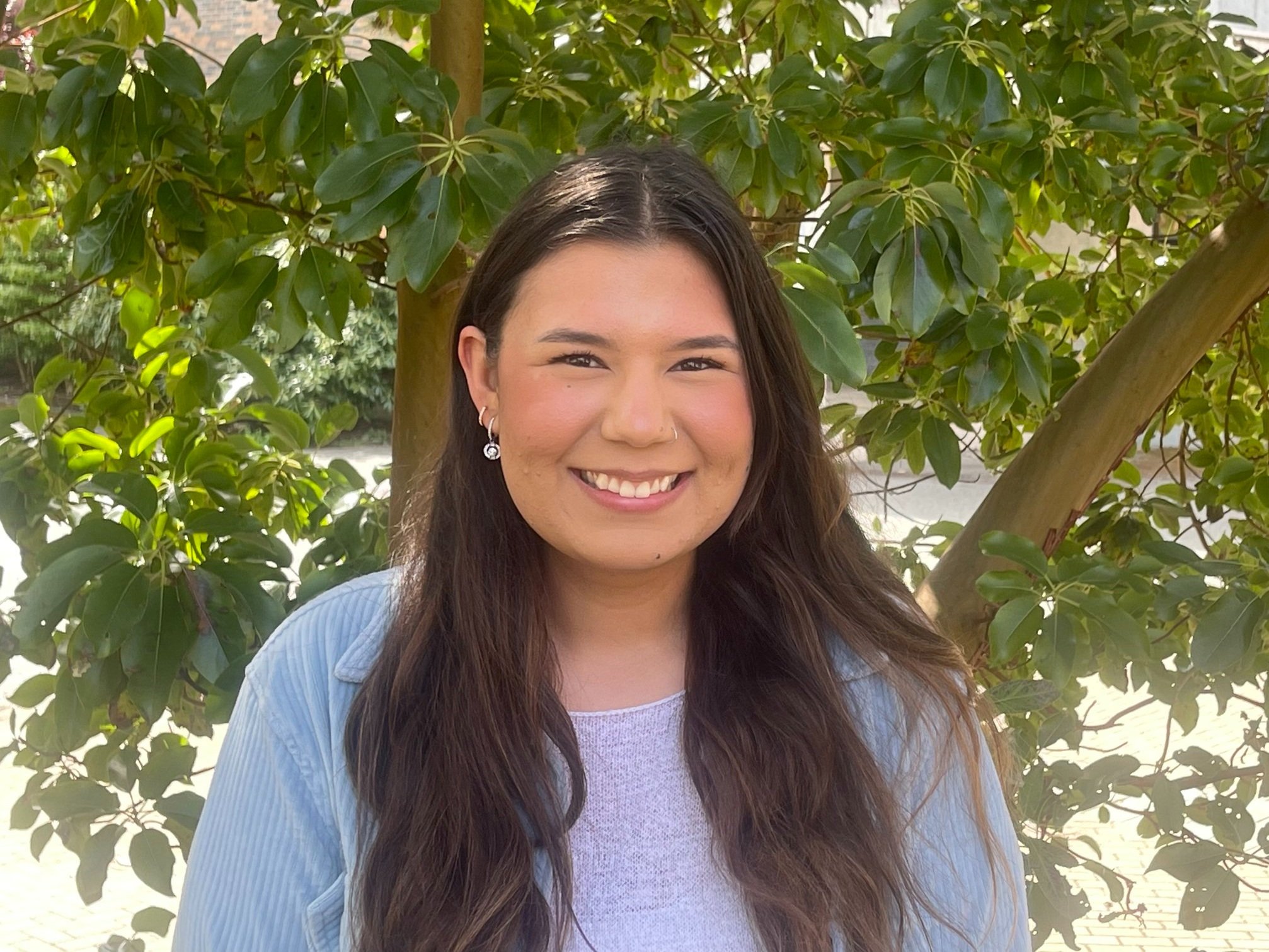
VAST Journal Club
Presenter: Hayley Casey (MSc student in Clinical Psychology (Neuropsychology Stream), University of Victoria)
The objective of this Journal Club is to learn more about dementia within Indigenous populations, which has been limited in the past. This study examines the relationship between memory loss within a population of Indigenous Veterans and vascular risk factors.
To take a closer read: Kirkpatrick, A.C., Stoner, J.A., Donna-Ferreira, F., Malatinszky. G.C., Guthery, L.D., Scott, J., & Prodan, C.I. (2019). High rates of undiagnosed vascular cognitive impairment among American Indian veterans. GeroScience, 41(1), 69-76. doi: 10.1007/s11357-019-00055-5
View Recording

VAST Summer Program
2024 VAST Summer Student Symposium
Time: August 20 12-2 pm ET
In the first part of the Symposium, we welcome Dr. Guilherme Moraes Balbim to share with us his work on how exercise programs can help stroke patient’s experience improved sleep, thereby reducing a patient’s risk of experiencing additional strokes in the future.
Keynote Speaker: Guilherme Moraes Balbim - Rise & Shine: Promoting Sleep Quality in Chronic Stroke with Exercise
Tune in for Student Presentations:
Esther Dazogbo - Establish whether the circulating lipidome can be used to monitor the extent and progression cerebral amyloidangiopathy (CAA) associated with cognitive decline
Bhavana Gill - Cerebrospinal Fluid Alzheimer’s Disease Biomarkers in Patients with Transient Ischemic Attack
Georgia Polomski - Towards Clinical Applications of fNIRS: Improving Reproducibility
Milla Shakleva - Analyzing Cerebral Blood Flow in Patients with Cardiovascular Risks Factors (CVRF) Using Arterial Spin Labeling
Mckenna Stuart - Utilizing a Fluorescent Tracer to Investigate Murine Cerebrovascular Impairments in Neurotrauma and Associated Dementia
Ibadat Warring - Longitudinal Associations Between Vascular Risk Factors and Mild Behavioral Impairment
VAST Summer Program:
The VAST Summer Program encompasses a series of workshops and seminars targeted to undergraduate trainees in the field of VCI to help with overall VCI knowledge, research skills, and networking. While targeted to undergraduates, all are welcome to attend. This series is coordinated by our VAST Trainee Curriculum Committee members. We'd encourage everyone to invite trainees in their labs. Sessions are organized biweekly for Tuesdays beginning at 4pm eastern time / 2pm mountain time / 1pm pacific time. The series will finish with our annual Summer Student Symposium at the end of August (date TBD but save Aug 20 at 12-3pm eastern in your calendar)! All trainees who attend at least 4 of the sessions, as well as the symposium, will be awarded a certificate of completion. All trainees are welcome to sign up and attend the program.
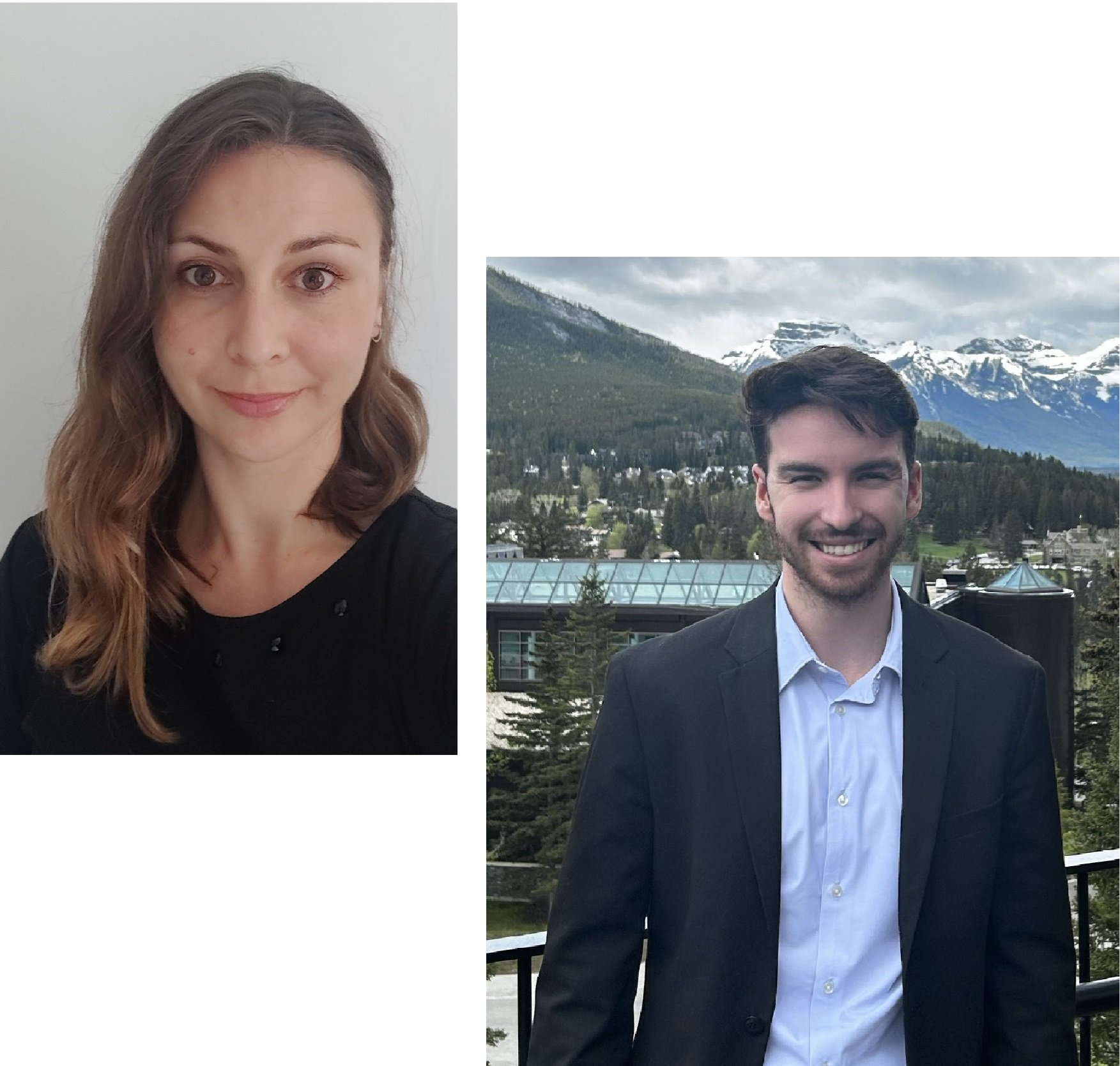
VAST Summer Program
Presentation Skills Workshop
Speaker: Bogna Anna Drozdowska and Zacharie Potvin-Jutras
Time: August 6 4-5 pm EDT
In the first part of this workshop, we will provide tips on how to effectively communicate your research through poster and oral presentations. In the second part, students will have an opportunity to present their own research and receive feedback from peers.
Learning objectives:
Understand what makes for an eye-catching and clear poster
Learn how to design slides that help engage your audience and support understanding of key points
Gain tips for delivering a cohesive, memorable talk that holds your audience's attention throughout
Practice appraising others' presentations as a means to improve your own skills
Bios:
Dr. Drozdowska:
Since obtaining a master's degrees in Psychology and Brain Injury Rehabilitation, most of Dr. Drozdowska’s work and training has centred on clinical research into cerebrovascular disease, with a specific focus on vascular cognitive impairment. This topic was also at the heart of her PhD, which she completed at the University of Glasgow in Scotland. After spending several years in the UK, she moved to Canada and joined the Clinical Neurosciences Department at the University of Calgary as a Postdoctoral Associate. Her current role involves working on studies utilizing both quantitative and qualitative research methods. While our lab's projects - observational studies, clinical trials, and systematic reviews - seek to answer various research questions, they share a common goal to contribute to improving healthcare and, in turn, outcomes for people living with cerebrovascular disease.
Zacharie Potvin-Jutras:
Zacharie completed his undergraduate studies in Kinesiology and Clinical Exercise Physiology at Concordia University. Driven by a passion for research and brain health, he fast-tracked from a Master's degree to a PhD in Physics at Concordia University, under the supervision of Dr. Claudine Gauthier. Their lab focuses on implementing advanced quantitative MRI techniques to identify early biomarkers for various diseases and aging. His research emphasises the critical role of physical activity and exercise interventions in improving vascular brain health in aging.
VAST Summer Program:
The VAST Summer Program encompasses a series of workshops and seminars targeted to undergraduate trainees in the field of VCI to help with overall VCI knowledge, research skills, and networking. While targeted to undergraduates, all are welcome to attend. This series is coordinated by our VAST Trainee Curriculum Committee members. We'd encourage everyone to invite trainees in their labs. Sessions are organized biweekly for Tuesdays beginning at 4pm eastern time / 2pm mountain time / 1pm pacific time. The series will finish with our annual Summer Student Symposium at the end of August (date TBD but save Aug 20 at 12-3pm eastern in your calendar)! All trainees who attend at least 4 of the sessions, as well as the symposium, will be awarded a certificate of completion. All trainees are welcome to sign up and attend the program.
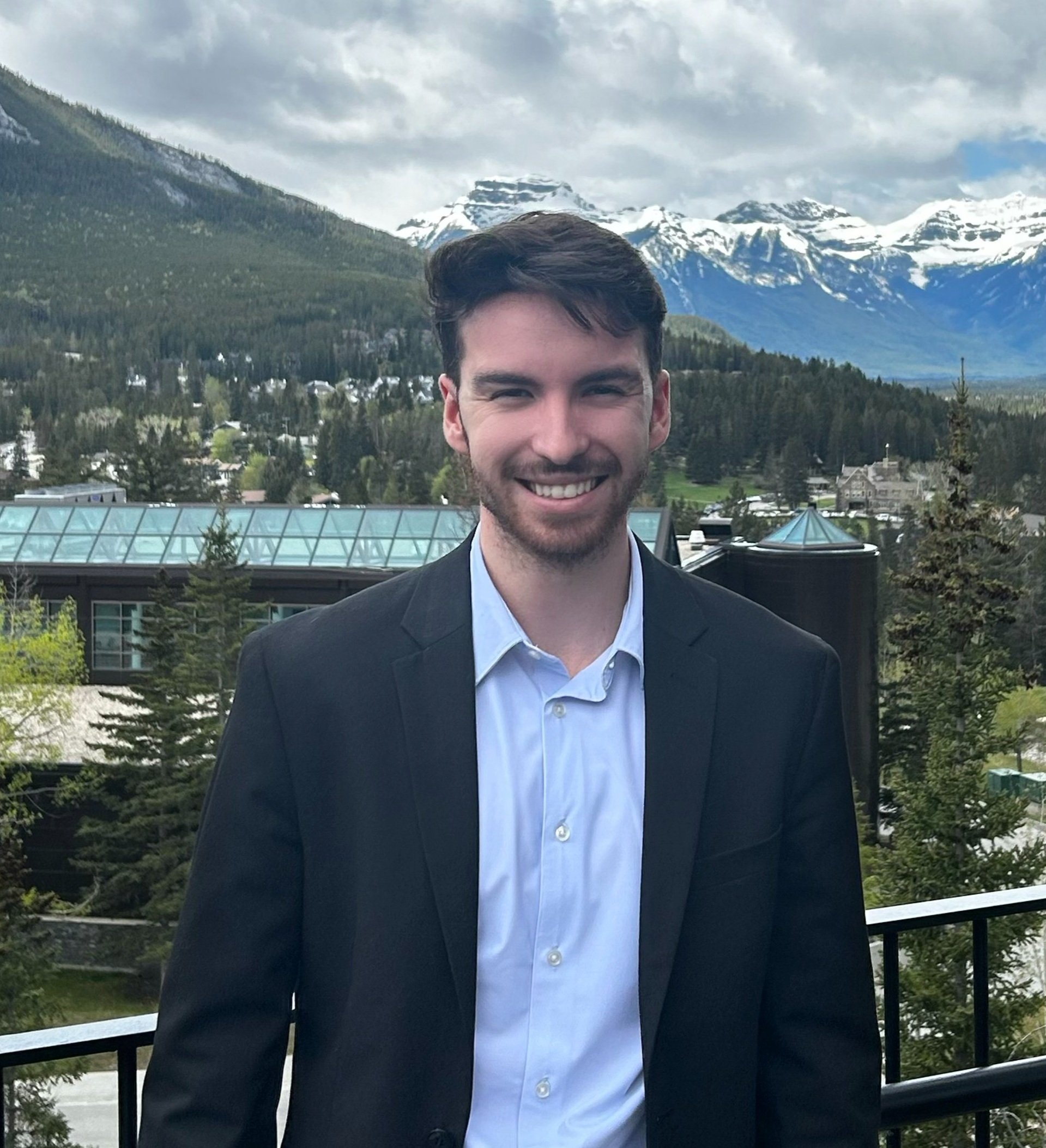
VAST Journal Club
Presenter: Zacharie Potvin-Jutras (Doctoral student, Quantitative Physiology Imaging Lab, Physics Dept, Concordia University)
The objective of this Journal Club is to learn about this new method to measure cerebrovascular reactivity and its applications. Cerebrovascular reactivity is an important biomarker to vascular brain health. Resting state cerebrovascular reactivity quantifies the ability of blood vessels to vasodilate in response to a vasodilatory stimulus. The paper above describes in detail the method and a few applications.
For a detailed explanation of the method: Liu, P., Li, Y., Pinho, M., Park, D. C., Welch, B. G., & Lu, H. (2017). Cerebrovascular reactivity mapping without gas challenges. NeuroImage, 146, 320–326. https://doi-org.lib-ezproxy.concordia.ca/10.1016/j.neuroimage.2016.11.054
Bio: Zacharie completed his undergraduate studies in Kinesiology and Clinical Exercise Physiology at Concordia University. Driven by a passion for research and brain health, he fast-tracked from a Master's degree to a PhD in Physics at Concordia University, under the supervision of Dr. Claudine Gauthier. Their lab focuses on implementing advanced quantitative MRI techniques to identify early biomarkers for various diseases and aging. His research emphasises the critical role of physical activity and exercise interventions in improving vascular brain health in aging.

VAST Summer Program
Data Visualization Essentials for VAST Trainees
Speaker: Dylan Guan
Time: July 23 4-5 pm EDT
Learning objectives:
Understand the importance of data visualization in research analysis and communication
Identify the various types of common data visualizations and understand when to use each one
Understand how to implement data visualization best practices and avoid poor practices
Learn how to generate basic plots in the R programming language
VAST Summer Program:
The VAST Summer Program encompasses a series of workshops and seminars targeted to undergraduate trainees in the field of VCI to help with overall VCI knowledge, research skills, and networking. While targeted to undergraduates, all are welcome to attend. This series is coordinated by our VAST Trainee Curriculum Committee members. We'd encourage everyone to invite trainees in their labs. Sessions are organized biweekly for Tuesdays beginning at 4pm eastern time / 2pm mountain time / 1pm pacific time. The series will finish with our annual Summer Student Symposium at the end of August (date TBD but save Aug 20 at 12-3pm eastern in your calendar)! All trainees who attend at least 4 of the sessions, as well as the symposium, will be awarded a certificate of completion. All trainees are welcome to sign up and attend the program.

VAST Summer Program
Open Brain: An introduction to open-access tools for preprocessing, analysis, and visualization of brain MRI data
Speaker: Dr. Nárlon C Boa Sorte Silva
Time: July 9 at 4-5 pm EDT
Learning objectives:
Learn about the most common open-access software to preprocess and analyze structural and functional MRI data, including FSL, FreeSurfer, ANTs, and Python.
Learn some basic data plotting functions using R (ggseg family packages), Python (nilearn software), and ANTS.
Learn tips and tricks to integrate different software and scale MRI data analysis pipeline to large datasets using scripting, containers, and clusters.
VAST Summer Program:
The VAST Summer Program encompasses a series of workshops and seminars targeted to undergraduate trainees in the field of VCI to help with overall VCI knowledge, research skills, and networking. While targeted to undergraduates, all are welcome to attend. This series is coordinated by our VAST Trainee Curriculum Committee members. We'd encourage everyone to invite trainees in their labs. Sessions are organized biweekly for Tuesdays beginning at 4pm eastern time / 2pm mountain time / 1pm pacific time. The series will finish with our annual Summer Student Symposium at the end of August (date TBD but save Aug 20 at 12-3pm eastern in your calendar)! All trainees who attend at least 4 of the sessions, as well as the symposium, will be awarded a certificate of completion. All trainees are welcome to sign up and attend the program.

VAST Summer Program
Involving people with lived experience in research: perspectives from the CCNA's EPLED team and collaborators
Speakers: Ellen Snowball, Myrna Norman, Jennifer Monaghan, Laura Fitzgibbon-Collins, Dylan Guan
Moderator: Dr. Bogna Drozdowska
Time: June 25 4-5:30pm EST
Learning objectives:
To discuss the importance of involving the lived experience in research from start to end
To provide perspectives of people with lived experience and researchers on the impact this practice has had
To provide examples of ways to engage people with lived experience in research
More about EPLED: https://www.epled.ca/
VAST Summer Program:
The VAST Summer Program encompasses a series of workshops and seminars targeted to undergraduate trainees in the field of VCI to help with overall VCI knowledge, research skills, and networking. While targeted to undergraduates, all are welcome to attend. This series is coordinated by our VAST Trainee Curriculum Committee members. We'd encourage everyone to invite trainees in their labs. Sessions are organized biweekly for Tuesdays beginning at 4pm eastern time / 2pm mountain time / 1pm pacific time. The series will finish with our annual Summer Student Symposium at the end of August (date TBD but save Aug 20 at 12-3pm eastern in your calendar)! All trainees who attend at least 4 of the sessions, as well as the symposium, will be awarded a certificate of completion. All trainees are welcome to sign up and attend the program.

VAST Summer Program
Introduction to research on vascular cognitive impairment and dementia: clinical presentations, etiology, prevention and treatment
Speakers: Prof. Phillip Barber and Dr. Nárlon C Boa Sorte Silva
Time: June 11 4-6pm EST
This session will feature a presentation from Dr. Phil Barber on vascular dementia syndromes including causes, diagnosis, and treatment. Followed by a presentation from Dr. Nárlon C Boa Sorte Silva on defining randomized controlled trials (RCTs), prevention and treatment of VCI, and an overview of prominent RCTs for VCI and dementia focused on pharmacological and lifestyle interventions.
Bios:
Dr. Philip Barber is a Professor in the Department of Clinical Neurosciences at the University of Calgary. He directs the Stroke Prevention Clinic at the University of Calgary and is a member of the Vascular Illness Team of the Canadian Consortium on Neurodegeneration and Aging (CCNA). He has participated as committee member for a clinical update statement on Vascular Cognitive Impairment for the Canadian Consensus Conference on the Diagnosis and Treatment of Dementia 5thEdition. His CIHR and Heart and Stroke Foundation funded research program investigates stroke and vascular contributions to neurodegeneration (H index 50, >20000 citations Google scholar).
Dr. Nárlon C Boa Sorte Silva is a Postdoctoral Research Fellow in the Department of Physical Therapy at The University of British Columbia. Under the supervision of Prof. Teresa Liu-Ambrose in the Aging, Mobility and Cognitive Health Lab, Dr. Boa Sorte Silva’s research aims to understand the impact of preventive or protective factors on age- and pathology-related declines in brain health. Specifically, he is assessing the influence of exercise on white matter myelin, cortical volume, and clinical outcomes such as mobility and cognition in older individuals living cerebral small vessel disease. Dr. Boa Sorte Silva earned his PhD in Kinesiology from Western University (London, Ontario) and a BSc in Physical Education from University Nove de Julho (São Paulo, Brazil). He has expertise in design and implementation of randomized controlled trials, exercise assessment and prescription, as well as neuroimaging, neuropsychological, and clinical data analysis. His postdoctoral research has been funded with competitive awards from the Canadian Institutes of Health Research, Michael Smith Health Research BC, Canadians for Leading Edge Alzheimer Research, and StrokeCog.
VAST Summer Program:
The VAST Summer Program encompasses a series of workshops and seminars targeted to undergraduate trainees in the field of VCI to help with overall VCI knowledge, research skills, and networking. While targeted to undergraduates, all are welcome to attend. This series is coordinated by our VAST Trainee Curriculum Committee members. We'd encourage everyone to invite trainees in their labs. Sessions are organized biweekly for Tuesdays beginning at 4pm eastern time / 2pm mountain time / 1pm pacific time. The series will finish with our annual Summer Student Symposium at the end of August (date TBD but save Aug 20 at 12-3pm eastern in your calendar)! All trainees who attend at least 4 of the sessions, as well as the symposium, will be awarded a certificate of completion. All trainees are welcome to sign up and attend the program.

VAST Workshop: KM Planning
Get started with Knowledge Mobilization. Do it for Grandma.
Learning Objectives:
Become familiar with the main components of Knowledge Mobilization planning.
Understand the concept of Knowledge User (audience), and consider relevant Knowledge Users in the context of your own research.
Get to know a few examples of Knowledge Mobilization activities and consider their possible fit to your own work.
Dr. Inbal Itzhak is a certified Knowledge Mobilization Specialist with a PhD in Communication Sciences and Disorders from McGill University. Inbal is the Knowledge Mobilization Specialist at the Canadian Consortium on Neurodegeneration in Aging (CCNA). She is experienced in Knowledge Mobilization capacity building, project planning, and impact evaluation, as well as stakeholder engagement and partnership development. Her training in both research and knowledge translation reflects her passion for creating meaningful links between science and the world outside of academia. She believes this gap is best bridged by creating boundary-crossing relationships where people with lived experience, scientists, and professionals collaborate and learn together.

VAST Seminar: Dr. Ruth Ann Marrie & Dr. Colleen Maxwell
Social determinants of health, vascular cognitive impairment and administrative data
Learning Objectives:
To review social determinants of health in vascular cognitive impairment
To learn about administrative data for studying vascular disease
Ruth Ann Marrie is a Professor of Medicine and Community Health Sciences at the University of Manitoba.Presently, she holds the Waugh Family Chair in Multiple Sclerosis and serves as the Vice Chair of the Scientific Steering Committee for the International Progressive MS Alliance. She is the former Chair of the Medical Advisory Committee for MS Canada, Past Chair of International Advisory Committee on Clinical Trials in MS and a Fellow of the Canadian Academy of Health Sciences. Her research aims to understand the influence of comorbid diseases on a range of multiple sclerosis (MS)-related health outcomes.
Dr. Colleen Maxwell is a Professor and University Research Chair with the Schools of Pharmacy and Public Health Sciences, University of Waterloo (https://uwaterloo.ca/pharmacy), a Senior Adjunct Scientist with ICES in Toronto (https://www.ices.on.ca), and an Adjunct Professor with Community Health Sciences, Cumming School of Medicine, University of Calgary. She is a senior health services researcher with expertise in aging, pharmacoepidemiology, neurodegenerative disorders, frailty, and continuing care. Her research interests focus on improving the quality of care and pharmacotherapy of older populations across the care continuum – particularly among those with multimorbidity, dementia, depression, and related disorders. She is involved in national and international collaborative research on the health and quality of care needs of older residents within Assisted Living, Home Care and Long-Term Care settings.

VAST Journal Club
How social media can help boost one's career
Speaker: Dr. Isabel Castanho
In this interactive seminar, Dr. Isabel Castanho will share her insights on leveraging social media platforms for networking and professional development in academia. Drawing from her personal experiences, Isabel will review how Twitter brought her valuable opportunities and benefited her career. She will also explore alternatives to X, like LinkedIn and Mastodon. Join us to learn and discuss practical strategies for enhancing your online presence and expanding your academic network.
Dr. Isabel Castanho is an Instructor at Beth Israel Deaconess Medical Center (BIDMC), Harvard Medical School (United States). She is also a member of the Advisory Council of the Alzheimer's Association International Society to Advance Alzheimer's Research and Treatment (ISTAART). Dr. Castanho has a background in biology, neuroscience, genomics, and bioinformatics. She completed her PhD at the University of Exeter (United Kingdom) in 2019, where she investigated genomic signatures of tau and amyloid pathology progression in rodent models of Alzheimer’s Disease. In her current research, she is investigating protective mechanisms against Alzheimer’s disease. Dr. Castanho holds an Alzheimer's Association Research Fellowship (AARF) and she was one of the recipients of the Junior Faculty Award at AD/PD 2024.

VAST Seminar: Dr. Meaghan O’Reilly
Transcranial focused ultrasound for targeted drug delivery
Meaghan O’Reilly is a Senior Scientist in Physical Sciences at Sunnybrook Research Institute in Toronto, Canada, an Associate Professor of Medical Biophysics at the University of Toronto, and the Tier 2 Canada Research Chair in Biomedical Ultrasound. Dr. O’Reilly’s research interests include ultrasound therapy applications in the central nervous system, with a focus on delivery, monitoring and control of microbubble-mediated therapies in the brain and spinal cord.
Learning Objectives:
To understand the mechanisms by which ultrasound can permeabilize cerebral vasculature
To learn about the technological challenges for transcranial ultrasound delivery
To review the current clinical status
